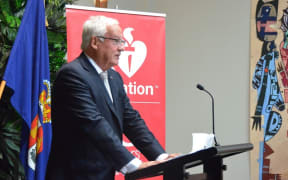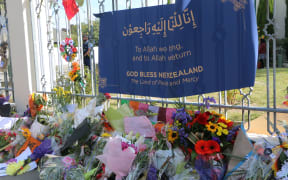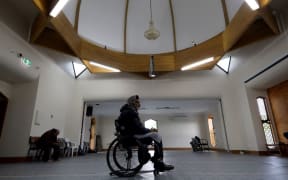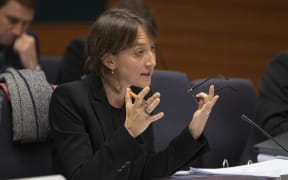The Chief Human Rights Commissioner is urging the Royal Commission of Inquiry into the Attack on Christchurch Mosques to ramp up its efforts to include the Muslim community in its work.
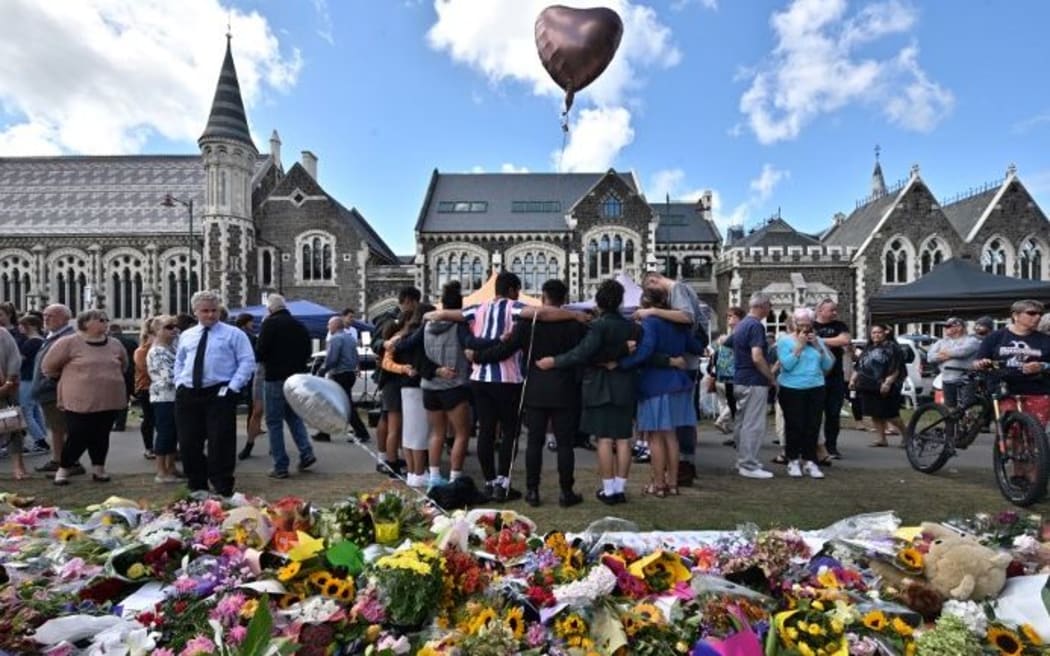
A group of students singing at the Botanical Gardens in Christchurch on 19 March to pay tribute to the victims of the mosque attacks. Photo: AFP or licensors
The top-level inquiry, headed by Justice Sir William Young and former diplomat Jacqui Caine, is investigating the accused gunman and his activities before 15 March, as well as the role of New Zealand's security agencies.
The Commissioner, Paul Hunt, said members of Muslim communities were continuing to express their concerns about their lack of inclusion in the Inquiry.
"We therefore urge the Royal Commission to increase its efforts to include the Muslim community in the Inquiry, especially in Christchurch."
Mr Hunt said the recent orders from the Commission constrained what he could say publicly about his communications with the Inquiry.
But he said he had serious reservations about the extent and scope of the extensive suppression orders blanketing the Commission's work, and their effect on the transparency of its process.
Mr Hunt was asking the Inquiry to reconsider the scope of the suppression orders as he said they "impact upon the principle of open justice."
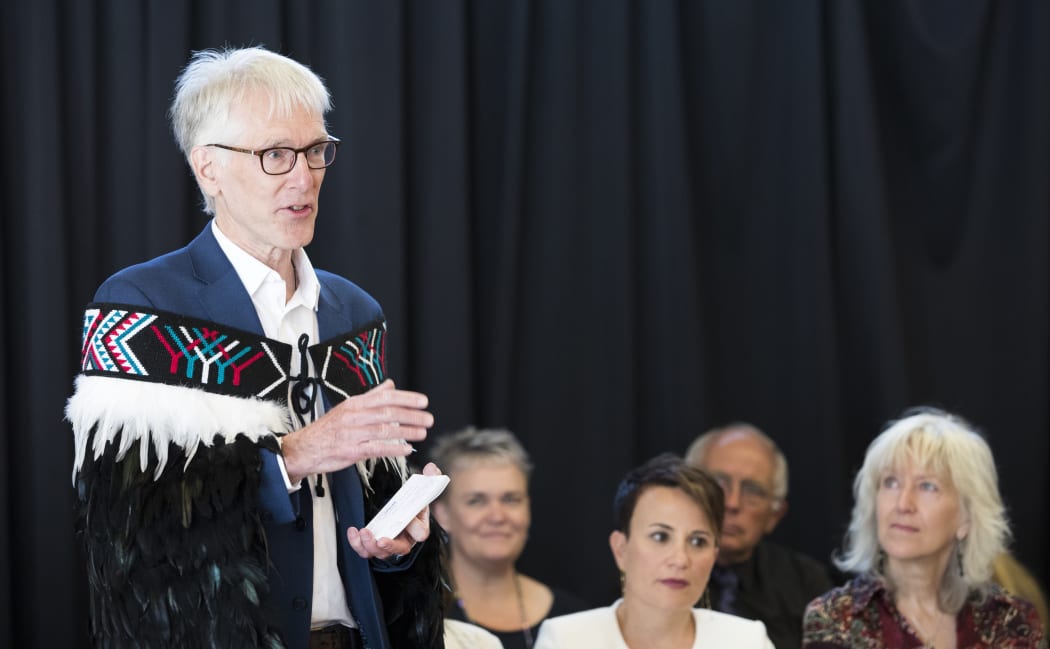
Human Rights Commissioner Paul Hunt. Photo: Supplied
Last week the Royal Commission extended the extensive suppression orders blanketing the Inquiry to cover every single government agency and crown entity.
In May, when the commission started gathering evidence, it ordered all evidence and submissions made by nine government agencies (including the GCSB, Customs and the Department of the Prime Minister and Cabinet) to be kept secret for the foreseeable future.
It also ordered all correspondence between those agencies and the Commission to be kept private.
On Wednesday the commission added more than 200 government agencies, crown entities and departments to the list, regardless of whether they end up providing evidence to the inquiry, or not. They include the Department of Internal Affairs, Antarctica New Zealand, Te Papa, City Rail Link and RNZ.
The order will be reviewed, but it is unclear when that will happen.
The commission said it was very conscious of the grief and pain felt within Muslim communities and it's their sincere wish not to contribute further to that pain.
A spokesperson for the Royal Commission of Inquiry said it began community engagement in May with initial meetings in Christchurch with Muslim religious leaders, leaders of Muslim NGOs, Ngāi Tahu leaders and the Mayor of Christchurch City.
"At the heart of our work and thoughts are the 51 people who lost their lives in Christchurch; and the relatives, friends and fellow Muslims who grieve them.
"The Royal Commission team is working hard to engage with Muslim communities while being careful to respect the families who are still grieving, the privacy of individuals and families, as well as Muslim events and practices like the iddah grieving period, Ramadan and the upcoming Hajj.
"We're also conscious of the range of perspectives among people of Muslim faith from many different backgrounds and ethnicities, and these complexities must be treated sensitively and with respect."
Since beginning community engagement the Inquiry has brought in a "full team of community engagement experts", with diverse backgrounds, skills and experiences, the Inquiry spokesperson says.
"These include an understanding of Muslim communities, refugees, race relations, social exclusion, and dealing with trauma and grief.
"With the team on board we'll be strengthening our efforts and broadening our reach further ... we will continue to meet with Muslim communities. We welcome all advice on how best to do this."
Last week former Race Relations Commissioner Joris De Bres told Morning Report he was invited to meet with the Inquiry, but declined the offer because he thinks the victims and their communities are not being given enough consideration and support.
Mr De Bres said the extension of the suppression orders was the last straw for him and he wants assurances about transparency, because people cannot scrutinise what agencies are saying if their submissions are suppressed.
He said Islamic organisations have been given only small amount of assistance to gather and present information, and to question others.

